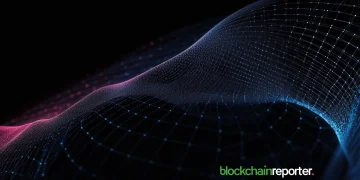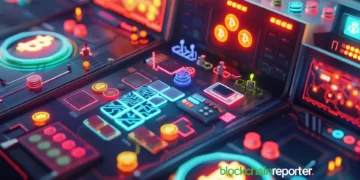The crypto and blockchain space has seen fast-paced development in slightly more than a decade since its launch. In the rapidly evolving cryptocurrency landscape, three sectors stand out for their innovation and potential impact on the market: Artificial Intelligence (AI), Decentralized Physical Infrastructure Networks (DePIN), and Real World Assets (RWA). All these sectors, despite being relatively new in the crypto space, accumulated impressive hold with $39 Billion, $36 Billion and $49 Billion in market capitalization respectively.
These three sectors emerged as the most trending crypto narratives, gathering the attention of industry experts and investors alike. The global crypto market saw a notable surge during the recovery phase, while specific tokens belonging to the AI, DePIN, and RWA sectors were among the top gainers. This meteoric rise in these tokens proves the potential of these projects and ensures they are poised to skyrocket in the coming bull run. This analysis dives into each sector to explore their developments, impacts, and investment potential.
AI Making Meaningful Changes In Crypto Space
Artificial Intelligence is reshaping the world, and blockchain technology is not far from its impact. Integrating AI enhances blockchain’s capabilities beyond mere transactional functions. Platforms like SingularityNET ($AGIX) and Fetch.ai ($FET) have pioneered integrating AI services on the blockchain, offering decentralized AI solutions.
Financial analysts predict that the AI sector in blockchain could see an investment influx of up to $500 million over the next five years. The projected growth for the blockchain AI market is expected to hit $970 Million by 2027.
The AI crypto sector has witnessed robust growth, with the market cap of AI-focused cryptocurrencies increasing by over 270% in the last year alone, signaling a burgeoning interest from developers and investors. Several tokens, such as $DUEL, the native cryptocurrency of AI-driven game development platform GameGPT, have also shown record-breaking performance.
GameGPT is at the forefront of integrating AI with game development, leveraging its first-mover advantage to potentially transform the gaming industry. Its proprietary $DUEL token is utilized across over 10,000 games, enhancing game design and economic frameworks and supporting community-based functionalities such as voting and marketplace transactions.
Notable endorsements from industry giants like Animoca Brands, CoinFund, and Polygon and collaborations with popular games like League of Legends and DOTA 2 support the project’s growth. GameGPT’s team, which includes veterans from Google and Epic Games, underscores its innovative approach.
With over 75,000 members in its community, GameGPT uses the $DUEL token to empower users to influence project directions and participate in in-game activities, making it a central element in GameGPT’s drive to redefine blockchain gaming through AI and blockchain convergence. The rising value of the $DUEL token reflects the project’s impact and potential within the evolving gaming landscape.
DePIN: A Shining Star Among Crypto Narratives
Decentralized Physical Infrastructure Networks (DePIN) are critical for enhancing privacy and security in digital interactions. Projects like Ontology ($ONT) and Helium ($HNT) are making moves in the space by developing identity verification systems and wireless network innovations through blockchain.
The DePIN market is growing in relevance as global data privacy laws become stricter, with the sector seeing an 80% increase in adoption over the past 18 months. Analysts estimate a surge in venture capital funding in DePIN projects by up to 200% shortly, driven by the escalating need for secure digital identity solutions.
Filecoin, with a market cap of $4.2 billion, ranks among the top 30 cryptocurrency projects. It operates a decentralized peer-to-peer file storage network where providers can offer hard drive space for secure file storage, compensated in $FIL tokens. Providers must pledge $FIL to participate.
The service, popular among universities, blockchain initiatives, and medical institutes, is poised for growth in 2024 as AI companies seek affordable, extensive data storage solutions. Filecoin remains a leader in the decentralized personal identifiable information network (DePIN).
Helium ($HNT) is another project holding a prominent position in the DePIN sector, facilitating Internet of Things (IoT) communications through a decentralized blockchain network. This network aims to provide affordable and accessible IoT connectivity worldwide by offering a wireless infrastructure for low-power devices over large areas. The native $HNT token is used within the network to reward operators of nodes, known as Hotspots, for providing and validating wireless coverage, as well as for transaction fees.
$HNT tokens are generated through a proof-of-coverage algorithm, which ensures Hotspots deliver genuine wireless coverage, thereby driving network expansion and enhancing data transfer reliability. Helium has established itself as a leader in the DePIN space by using blockchain to create a decentralized, incentivized network essential for device communications.
RWA Delivers Real-Life Values
The tokenization of Real World Assets allows tangible financial assets like real estate, art, and commodities to be traded on blockchain platforms. RealT and Maecenas are platforms that enable fractional ownership of real estate and art, respectively. The RWA sector has grown 120% in transaction volume over the past year, indicating strong investor interest in combining traditional assets with modern blockchain convenience. The tokenized real-world assets market cap is expected to exceed $200 billion by 2025, offering significant opportunities for early investors.
Landshare ($LAND) is leading the tokenized real estate sector for its unique value offering and utilities. It is making significant strides within the Real World Asset (RWA) sector, transcending the typical crypto hype by delivering genuine utility and concrete results.
The project’s native $LAND token recently experienced a dramatic surge, jumping from $1.3 to $7.2 in just one week, an increase of over 450%. This boost reflects the market’s recognition of Landshare’s unique approach to real estate investment.
Landshare utilizes its RWA tokens to merge blockchain technology with real estate investment, transforming property ownership into tangible blockchain assets. Through its LSRWA tokens, which symbolize ownership and confer co-ownership rights, Landshare significantly lowers the barriers to entry in the real estate market. Investments can start from as little as $50, democratizing access to a sector traditionally seen as exclusive and capital-intensive.
The global real estate market, valued at $29 trillion, is fraught with challenges like illiquidity and inefficiency that have historically limited accessibility for average investors. Landshare’s model of tokenizing real estate addresses these issues directly, positioning the platform as a leader in this transformative movement.
Unlike many crypto projects that fail to deliver on their promises, Landshare has proven its operational efficacy by successfully selling four properties. Among the competitors in the domain including Propy and Realio, etc. Landshare proves the worth by selling actual properties rather than smoke. This achievement underscores its real-world utility and differentiates it from less substantiated ventures.
Despite these groundbreaking achievements, Landshare remains undervalued at just $15 million, presenting a potentially lucrative investment opportunity that starkly contrasts with its actual market contributions and utility.
Furthermore, Landshare offers compelling staking rewards, enhancing the attractiveness of its investment model. Holders of the $LAND token can earn rewards of over 12%, and participants in the $LAND-$BNB liquidity pool may see returns as high as 66%. These incentives not only make investing appealing but also highlight the tangible benefits Landshare provides to its users.
The recent addition of the $LAND token to the MEXC crypto exchange and buzz about potential future listings continue to fuel investor interest and speculation about what might be next for this promising venture.
Comparative Analysis
Comparing the growth trajectories and risk factors of the AI, DePIN, and RWA sectors reveals distinct profiles. While offering substantial returns, AI carries higher technological and ethical risks. DePIN offers stability and is bolstered by regulatory trends, making it a lower-risk option. RWAs offer the most direct link to traditional asset valuation, providing a balanced risk-return profile.
GameGPT, Landshare, Filecoin, Helium, and a few other active projects are leading in their respective domains and are poised to see massive growth in the coming bull run.
As AI, DePIN, and RWA continue to develop within the crypto space, each sector presents unique opportunities and challenges for investors. The key to successful investment will be understanding these nuances and monitoring the evolving regulatory and technological landscape. Investors are encouraged to keep a close eye on these sectors as they are poised to redefine the boundaries of blockchain technology and its applications in real-world scenarios.























